‘Our task is not just to restore walls and ceilings.’ How a school shelter in Chernihiv saved people's lives and was later repaired
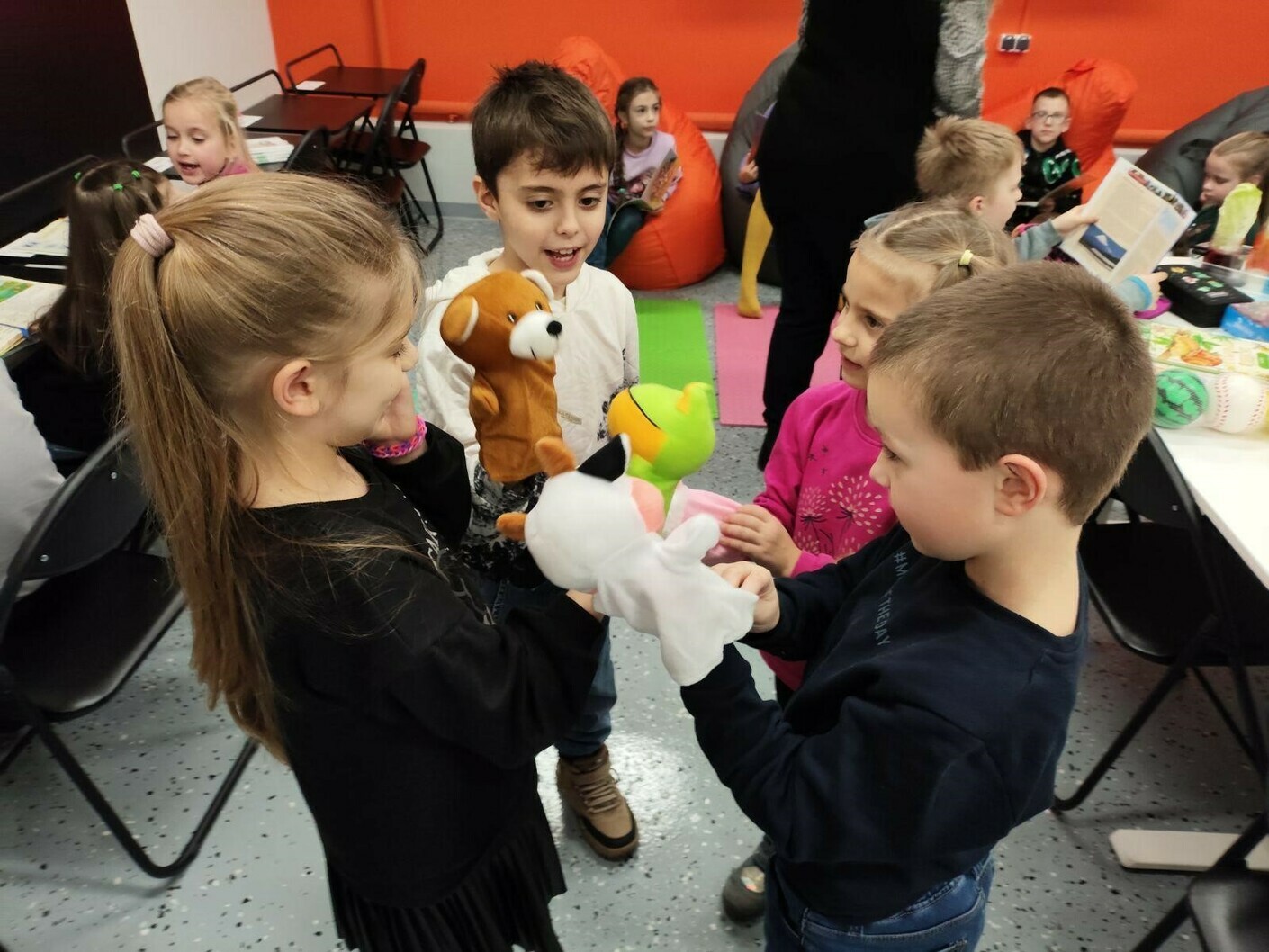
At 6 a.m. on 24 February 2022, Liudmyla Shelupets, the principal of Chernihiv Secondary School No. 19, was already at school. She first called the deputy principal responsible for educational and upbringing work to ask for help.
‘He arrived and we hid everything we could: documents, employment records and equipment. On 26 February, our students’ parents came and collected funds to purchase a large quantity of medicine. They asked me to join them, and together we set up a volunteer centre on the school grounds. And that is what we did. We provided targeted assistance to the population of Chernihiv, particularly those in our neighbourhood. We prepared meals for 2,400 soldiers from the Armed Forces and the Territorial Defence Forces,’ recalls Liudmyla Shelupets.
On 6 March, the Russians launched 12 strikes against the school and its grounds. At the time, around 500 people were in the school shelter. Several people were injured because they did not manage to reach the shelter in time. The rest were unharmed.
‘The school was badly damaged. There were holes left behind. The building and the roof were on fire. It was a nightmare. Thankfully, everyone survived — we were saved by two shelters on the school grounds,’ recalls Liudmila Shelupets, tears welling in her eyes.
Vasyl Bilohura, Head of the Education Department at Chernihiv City Council, says that during the full-scale invasion, 80 per cent of educational institutions in Chernihiv were damaged to some extent as a result of constant shelling.
‘Some were hit directly and suffered significant damage, while others were affected by shock waves. Unfortunately, we cannot help everyone who needs it, but we really want to,’ says Vasyl Bilohura.
Chernihiv has been cooperating with the Swiss-Ukrainian DECIDE project since 2023, and many initiatives have been implemented as part of this cooperation. The project has also undertaken the repair and refurbishment of five school shelters in the city.
Read this article to find out how they managed to resume classes and repair the shelter, enabling school students to stay there during air raid alerts.
Shelter before the full-scale invasion and after the shelling
There are two shelters at School No. 19. Before the full-scale invasion, the 544-square-metre shelter was used as a shooting range. The other shelter, which measures 238 square metres, served as a storage room.
‘Fifty or even sixty years ago, there was a changing room there. Then, everything that was deemed unnecessary was brought there. The premises were neglected. Ironically, however, it was these barricades made of old furniture that saved the people who were there during the shelling. These barricades, made of old furniture, covered the pits where the windows had been. No one was hurt. On 24 February, when they were bringing things in, my deputy and I thought it would be safest for the people to be in the classroom on the first floor, which had access to the courtyard. But the Russians hit that very spot, and everything was destroyed,’ says Liudmila Shelupets.
During the 2022/23 academic year, the school ran online lessons due to significant damage to the building. The windows and heating system components had to be replaced, and the roof needed repairing.
Repairs of school and bomb shelter
The planned renovation of the school involved four stages. The first two stages have already been completed. During this time, major repairs were carried out and the windows and heating systems were replaced. More than UAH 120 million was allocated for these works. Various funds also helped to purchase equipment.
The issue of shelter remained unresolved. Without it, offline learning is impossible.
‘It is important for us to encourage people to return to the city. One of the main factors is providing quality education for their children. They need to see that Chernihiv has a future and opportunities for development. Given the Chernihiv urban community’s limited budget, we are grateful for every opportunity to enlist partners’ support for this purpose,’ says Viktoriia Pekur, Deputy Mayor of Chernihiv for Executive Authorities
Liudmila Shelupets recalls her online meeting with the DECIDE Project.
‘Then we told them about our educational institution, the shelling, our recovery and the number of children studying there. Shortly afterwards, we were informed that School No. 19 had been selected for the DECIDE: VIDBUDOVA school reconstruction initiative and that we would have a brand new shelter. We were overjoyed. We also realised that sharing our story had not been in vain,’ the principal shares.
Work on the shelter took a year. Initially, they cleared the debris themselves. Any items that were intact but unnecessary were distributed to other schools in need of furniture. Some items were sent for recycling or to be melted down for scrap metal. Everyone helped: school students, teachers, technical staff, and parents.
‘When everything had been cleared away, the workers started work in April 2024. There was a lot to do, as the heating, drainage, lighting, and repairs all needed replacing. In autumn, we faced a challenge. During the explosion, the basement rooms were damaged. During rainy weather, there were serious leaks,’ says the principal.
The total cost of the 238-square-metre shelter was over UAH 4,238,000.
These funds were used, in particular, to install two lifts for people with disabilities, furnish three large classrooms, renovate the toilets, equip a psychological relaxation room, and purchase tablets and computers.
‘The work was not only external, but also high-quality internal work. Everything was done to ensure that the children were truly safe, comfortable, warm and happy,’ says Liudmila Shelupets.
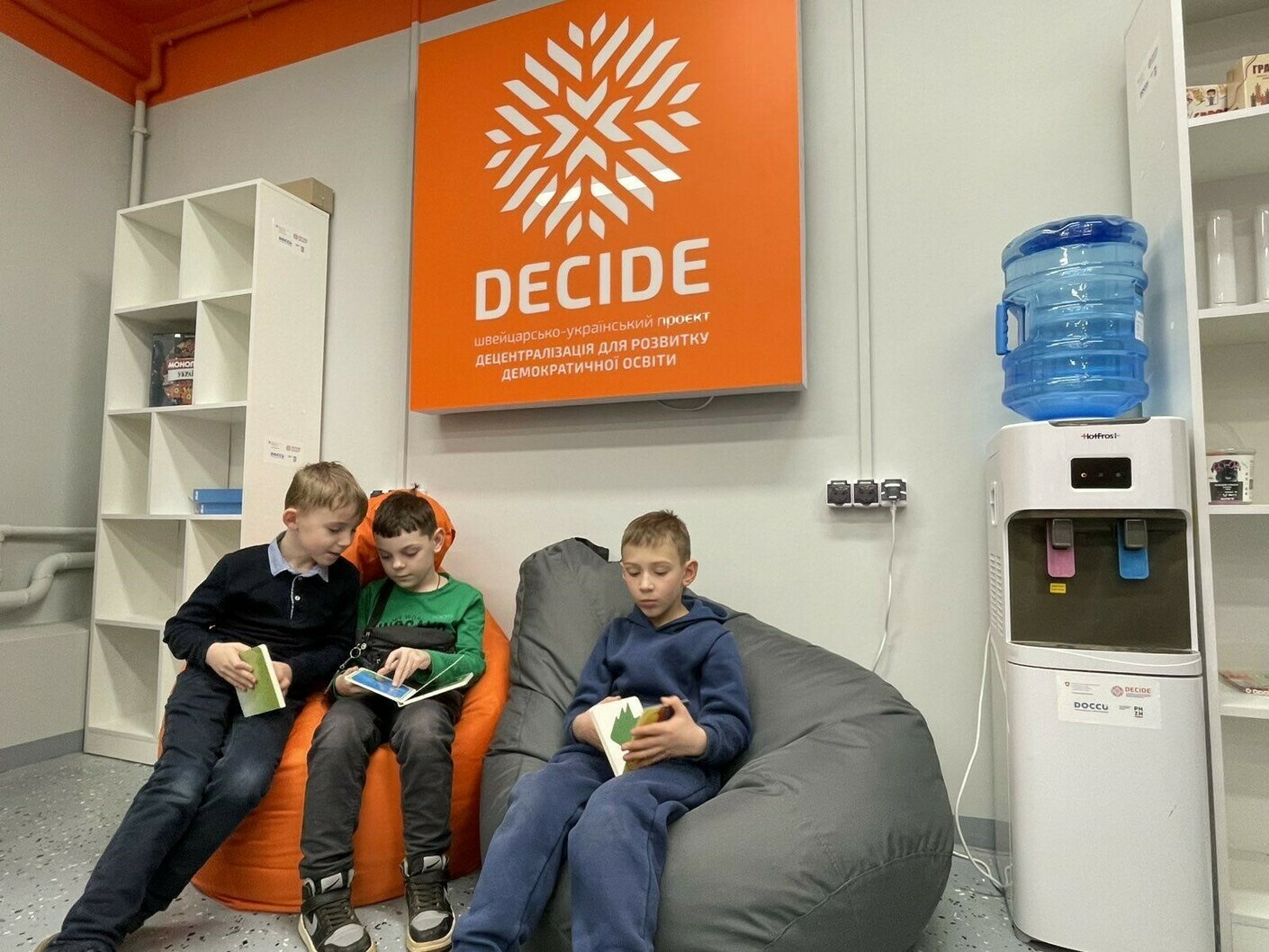 Schoolchildren in the bomb shelter after renovation
Schoolchildren in the bomb shelter after renovation
Current situation, feedback, and mini-grant
Out of the 1,800 school students in grades 1–9 who were studying at School No. 19 prior to the large-scale invasion, 1,421 remain. Forty-one classes are currently studying offline and can be accommodated in shelters during air raid alerts. The rest are studying online, including nine classes comprising students who have left the country.
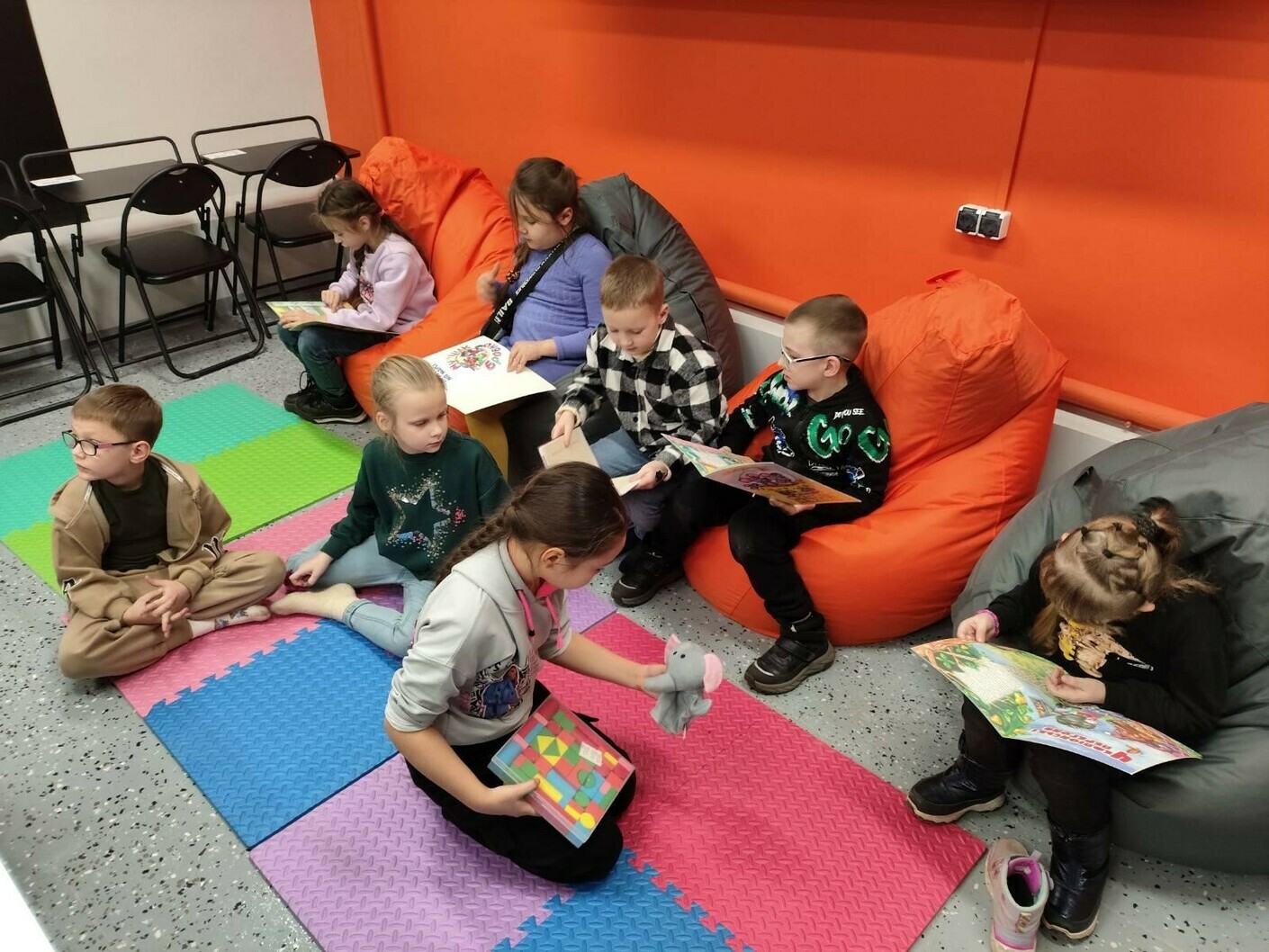
‘The shelter turned out to be very nice and modern, with beautiful furniture and multimedia systems. This is not just a place to stay, but also a place to hold classes in an emergency. In addition, six extended day groups work here during the second shift. When you go in there, your mood improves and you kind of forget why you are really here,’ admits the school principal.
Andrii Yashchenko, Deputy Principal responsible for educational and upbringing work, also talks about the mini-grant that DECIDE allocated to implement one of the students’ ideas and make the shelter more ‘their own’. As some of these students had already graduated from school, the deputy principal says:
‘First, the DECIDE experts taught the children how to develop projects. The children were divided into four teams, each of which developed and presented a project on filling the educational space. Some teams suggested buying additional furniture or board games, while others wanted a water cooler. Then there was campaigning and voting among the students.’
Ultimately, the project involving the creation of a recreation area was successful, and sofas, tables, and board games were purchased. The children enjoy using them.
‘Overall, our student self-government is very well developed. The school students who won and are now studying at other educational institutions are grateful for their involvement in this work. For instance, the girl who was the spokesperson for the winning team is now studying at a science lyceum. She says that she now understands how to work in a community, what leadership qualities to develop and how to unite a team. It is great that the DECIDE approach is not just about giving, but also about teaching,’ says Liudmila Shelupets.
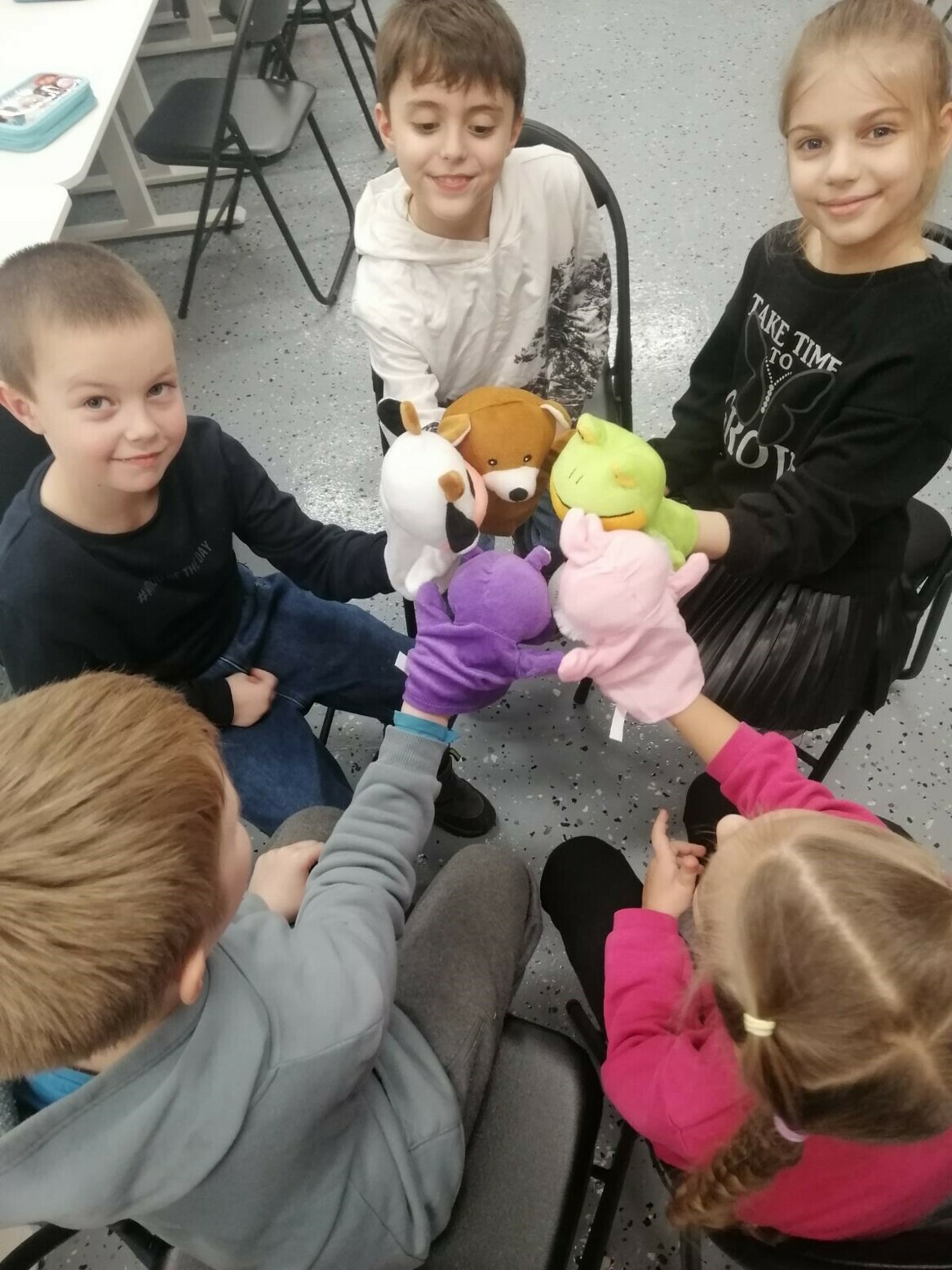
Primary school pupils in the bomb shelter
Liudmyla Shelupets and Andrii Yashchenko argue that, given the current circumstances, having modern shelter is of the utmost importance. First and foremost, they say, it is needed for protection. Secondly, it ensures that the educational process is not interrupted and that children feel calm and comfortable.
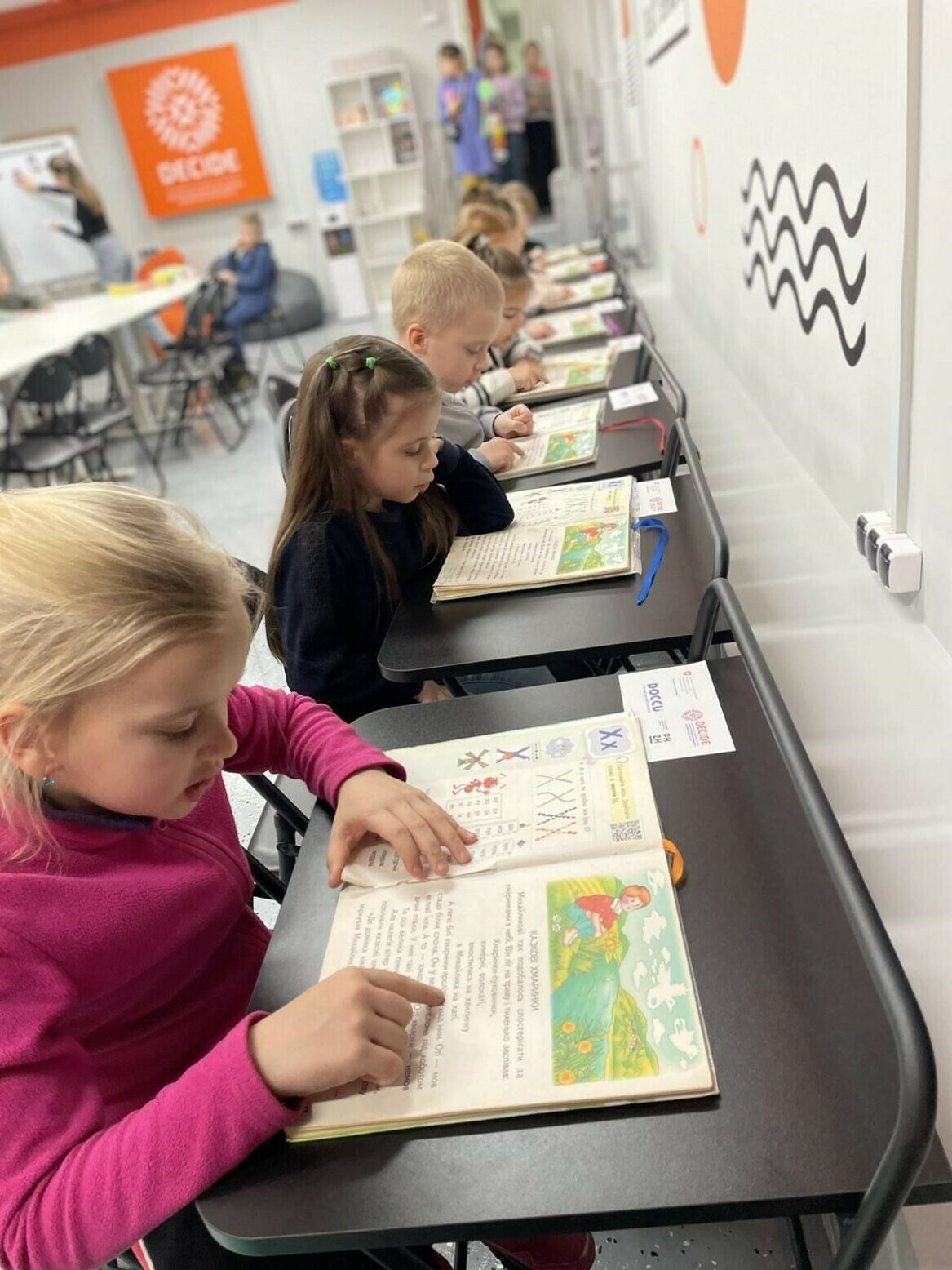
Primary school pupils in the bomb shelter
‘There was a recent incident: an air raid alert, second shift, extended day group. Young mothers came with small children in their arms to collect their older ones. Meanwhile, something was flying over Chernihiv. We suggested that the mothers go down to the shelter together. So, they sat there with their little children, drinking tea. And I understand how distracting it all is, how important this unity is. I believe that our educational institution will eventually be restored, and that their youngest children will study here, and we will be able to work to our full potential,’ concludes the principal of School No. 19.
Mariia Buleiko (Markovska)
05 November 2025
Розпочинається конкурсний відбір проєктів у...
Відбулося засідання Експертної робочої групи з питань ініціювання, підготовки, супроводження та реалізації спільних з...
05 November 2025
Як громадам ефективно використовувати...
Всеукраїнська Асоціація ОТГ запрошує представників ОМС, установ та організацій комунальної форми власності на вебінар...
05 November 2025
Ukraine demonstrates progress in regional policy – EC assessment for 2025
Ukraine demonstrates progress in regional...
The European Commission has published its 2025 EU Enlargement Report, recognising Ukraine’s progress in regional...
05 November 2025
Громади на шляху до ЄС: оцінка спроможності та інвестиційного потенціалу
Громади на шляху до ЄС: оцінка спроможності та...
Цьогоріч реформа управління публічними інвестиціями змінила підходи до бюджетного планування та проектної роботи на...